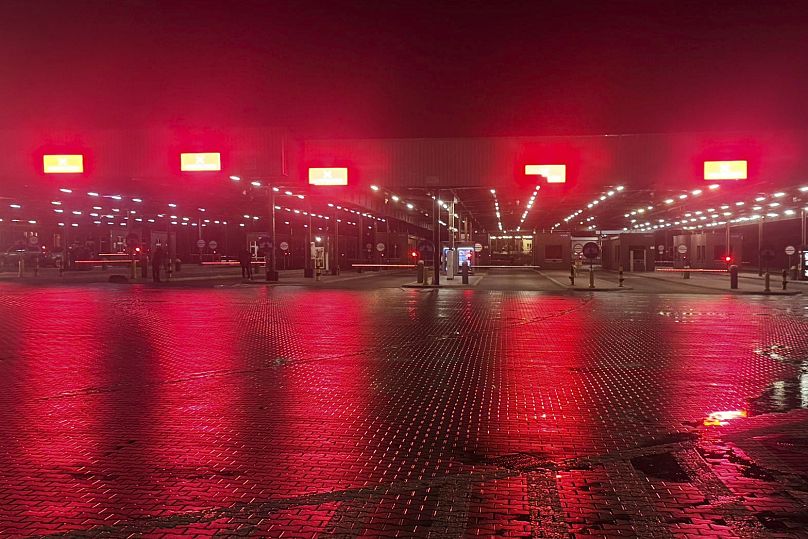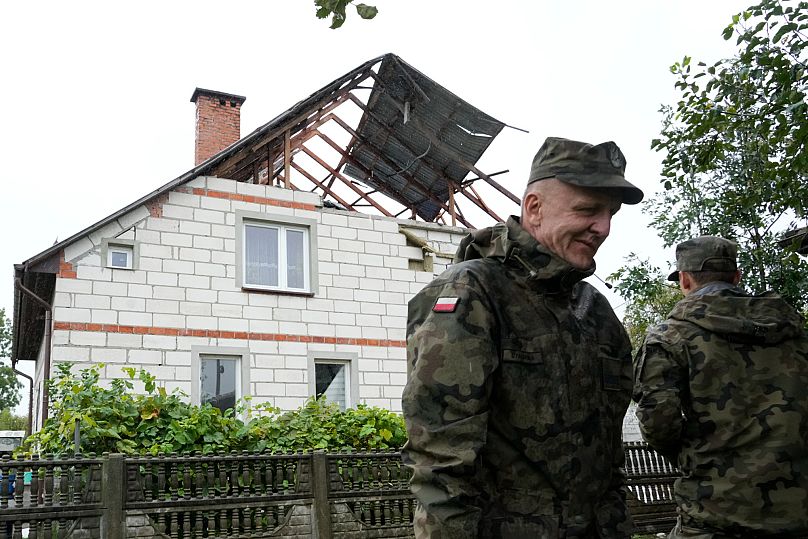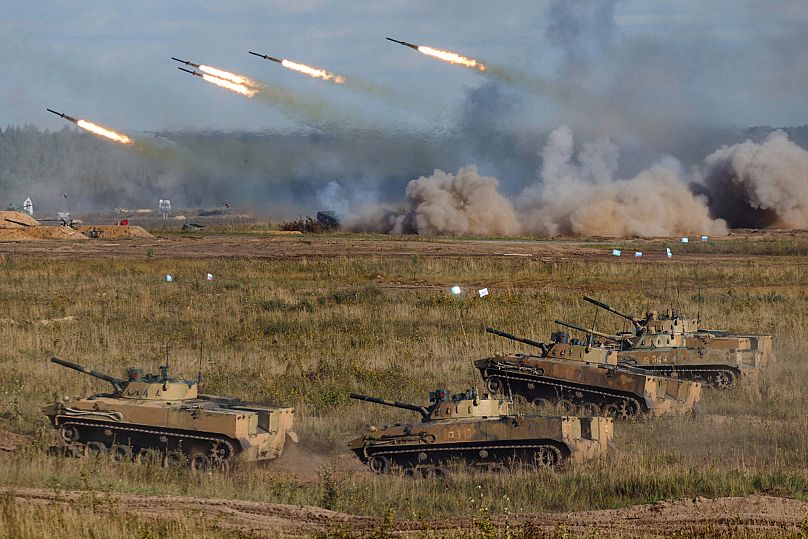Poland closed all border crossings with Belarus as the joint Russia-Belarus military exercises Zapad-2025 begin at NATO’s doorstep. Moscow and Minks claim the drills simulate repelling an attack against Russia and Belarus. But Zapad-2021 masked Russia’s preparations for its invasion of Ukraine.
Poland has shut down its border with Belarus as the Zapad-2025 military drills begin between Russia and Belarus on Friday.
All traffic across the border has been suspended in both directions, including cars and cargo trains.
During a midnight press conference in Terespol close to the border with Belarus, Polish Interior Minister Marcin Kierwinski said Zapad-2025 manoeuvres “during which aggressive war scenarios against our country are being practised.”
“Russia has been behaving aggressively towards Poland in recent days, and for many years has been behaving aggressively towards the entire civilised world. To ensure the safety of our citizens, we are forced to make these decisions."
Warsaw also said it is deploying 40,000 troops along its borders with Belarus and the Russian Kaliningrad exclave as the drills take off.
Moscow and Minsk claim that the Zapad — meaning "West" in English — manoeuvres are intended to test the ability of the two countries to defend themselves and repel an enemy attack.
But two days after Poland, with support from its NATO allies, shot down suspected Russian drones over its airspace, the drills are being watched in Europe more warily than ever.
According to Kyiv, out of the 19 Russian drones crossing into Poland overnight on Wednesday, at least a couple came via Belarus.
“At least two Russian drones that entered Polish territory during the night used Belarusian airspace,” Ukrainian President Volodymyr Zelenskyy said.
Zapad-2025: What Moscow and Minsk say
Zapad-2025 drills are scheduled to run between Friday and next Monday and are meant to test how Russia and Belarus can push back an enemy, retake lost territory and secure their borders, according to the Russian and Belarusian defence ministries.
Russia said the exercises will play out in two phases, with the first focused on defence and coordination and the second on regaining ground and defeating enemy forces. The drills are being staged at ranges in Belarus and Russia, as well as in the Baltic and Barents seas.
Earlier in August, the Belarus Defence Ministry said drills would also involve practice planning for the deployment of nuclear weapons.
"The head of state demands that we must be ready for all possible scenarios," Belarusian Defence Minister Viktor Khrenin said during a press conference following a closed-door meeting with Belarusian strongman Aliaksandr Lukashenka.
Minsk claimed the country was hosting Russian tactical nuclear arms on its territory, after the two countries signed an agreement in May 2023.
The Belarusian defence minister also said Zapad-2025 would involve the Oreshnik missile system.
"Naturally, as part of the Zapad exercise, we will conduct joint drills with our Russian colleagues for the planning of the deployment of this weapons system," Khrenin said in August.
In 2022, Zapad went west
Every Zapad manoeuvre — held every four years — reportedly so far involved between 12,000 and 13,000 troops, though NATO has argued that the officially reported numbers are questionable and doubted their purpose.
In September 2021 — just months before Russia began its full-scale invasion of Ukraine — Moscow claimed 12,800 servicemen participated in Zapad-2021 on Belarusian territory.
The total number of troops in the region was, in fact, around 200,000. In February 2022 Russia used forces that had remained in Belarus after the exercises ended to attack Ukraine from Minsk's territory.
“Lukashenka has made Belarus a springboard for Putin’s aggression”, Belarus opposition leader Sviatlana Tsikhanouskaya said, pointing out that “The last Zapad ended with Russia’s full-scale invasion of Ukraine”.
In August, Lithuania and Poland conducted defensive drills in response to Zapad-2025.
The Arsus Vilkas 2025 ("Fierce Wolf 2025") military exercise took place in Lithuania between 11 and 22 August.
Poland has hosted Iron Defender-25, a joint military exercise with NATO allies, which started in mid-August.
Border with Belarus and Russia reinforced
Poland and Latvia imposed restrictions on their airspace near the borders with Russia and Belarus after Russia’s drone incursion into Poland earlier this week.
Latvia’s Defence Ministry announced similar airspace restrictions along its eastern border with Russia and Belarus would take effect on Thursday evening and last at least one week.
Lithuania last month declared a no-fly zone along its border with Belarus from 14 August to 1 October, ahead of the Zapad-2025 military exercises.
Vilnius took the decision after two Russian Gerbera drones — simplified Tehran-designed Shaheds — crashed on Lithuanian territory, having flown in from Belarus.
Several Belarus' neighbouring countries also announced earlier this year that they are withdrawing from the anti-landmine treaty, which would allow them to fortify their border with minefields.
Estonia, Finland, Latvia, Lithuania and Poland have all recently announced their plans to withdraw from the treaty, which prohibits the use, stockpiling, production and transfer of anti-personnel mines.
In a joint statement, the countries' defence ministries cited a “fundamentally deteriorated security situation” in the Baltic region.














